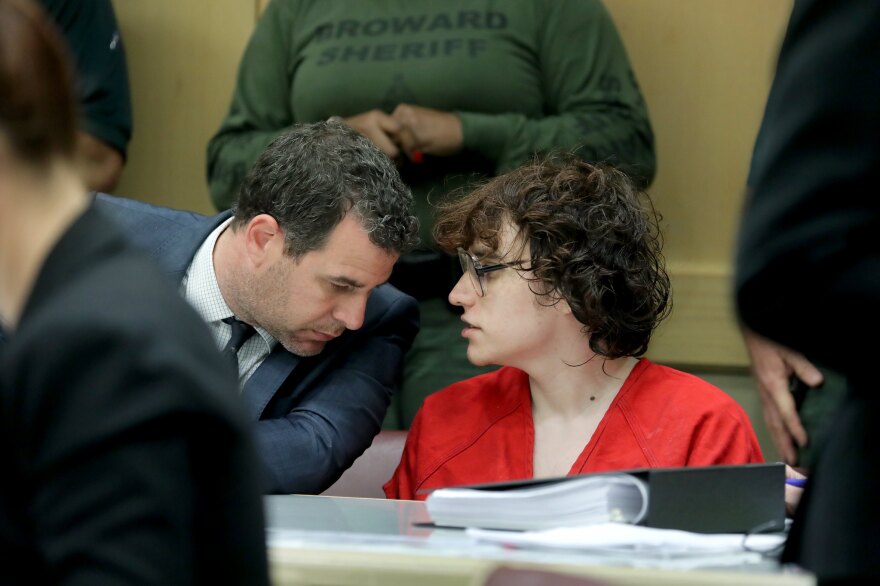After being allowed to skip one hearing, a Florida judge on Friday told school shooting defendant Nikolas Cruz he must appear in court when issues central to his death penalty case are discussed.
At a morning session, Cruz told Circuit Judge Elizabeth Scherer he didn’t want to take part in a hearing Friday concerning his alleged assault on a jail corrections officer. Scherer granted his request.
But a few hours later in a second hearing, Scherer said he had to stay and must show up for those that don’t involve purely legal or scheduling matters.
“I’m going to find that the defendant must be present for all substantive hearings,” Scherer said.
Cruz, 21, faces the death penalty if convicted in the February 2018 shooting that killed 17 people at Marjory Stoneman Douglas High School. His attorneys say he will plead guilty in exchange for a life prison sentence, but prosecutors have rejected that offer.
Cruz spoke briefly to answer the judge’s questions in the first hearing, wearing a red jail outfit and sporting longish bushy hair and oversize glasses. It marked his first court appearance in weeks.
In the second session, defense attorneys sought to show that prosecutors are rushing the case to trial while ignoring rules of procedure and evidence meant to protect Cruz’s constitutional rights.
For example, Assistant Public Defender Tamara Curtis said prosecutors filed defective notices that they planned to seek the death penalty and sought rulings from the judge to open access to certain kinds of evidence and witness statements, known broadly as discovery.
“The state is not completely aware of its discovery obligations,” Curtis said. “This is a capital case. Heightened standards of due process apply.”
But prosecutors insisted they were not violating any rights or rules and that defense lawyers have the ability themselves to find much of what they want.
“It is not our job under the case law to do their job for them. We don’t have to be the defense lawyers,” said Nicole Chiappone, an assistant state attorney.
Trial is set to begin with jury selection on Jan. 27, which is a quick pace for a death penalty case that stems from a mass killing less than two years old.
Gordon Weekes, an assistant public defender who is running for election to his office’s top job, said the rush to trial could lead to errors that might cause a conviction to be reversed.
“Then we’ll be back to square one and we’ll be doing this over again,” Weekes said.
Copyright 2020 WLRN 91.3 FM. To see more, visit . 9(MDAyNDY5ODMwMDEyMjg3NjMzMTE1ZjE2MA001))



